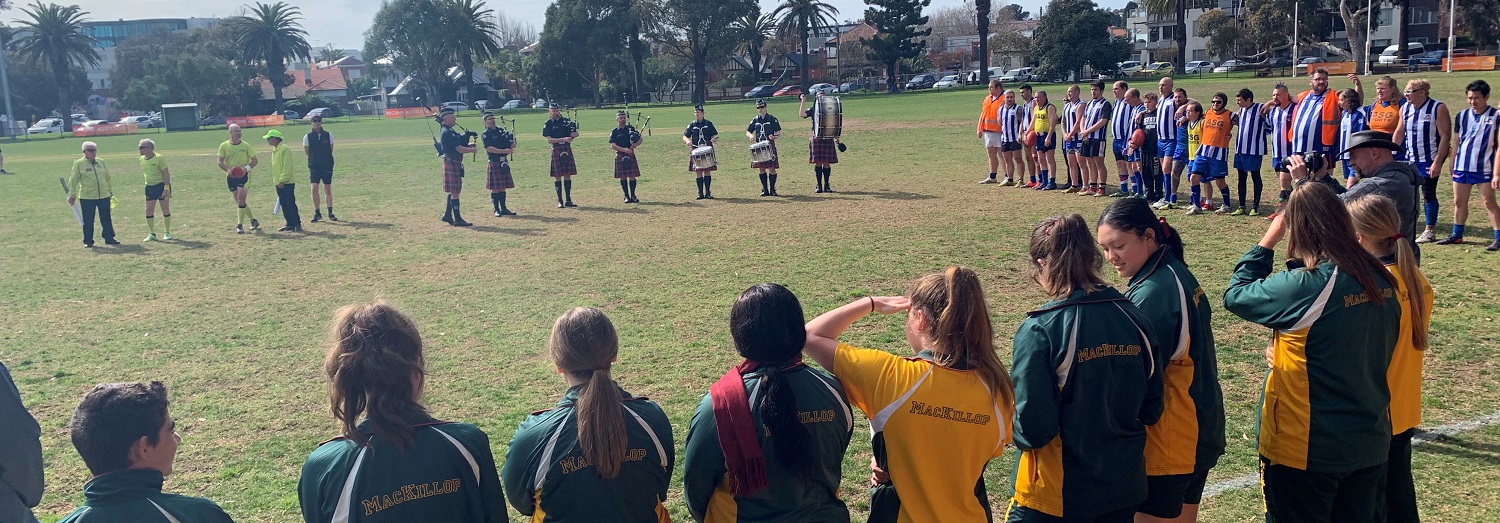
Raeles Budge from the Wynbay Bulldogs said, “…once I started getting involved with Reclink and playing footy I started to feel like I’m somebody. I actually belong to a team now and we’ve built friendships. It’s just been an amazing transformation from where I was 12 years ago to now.”
From the Ballarat Bushrangers to the Brimbank Roadrunners, finals are what the competition’s 18 teams across the state have worked towards all year and there were some classic marks, and snaps at goal at St Kilda’s Peanut Farm Reserve on the day.
The Reclink Football Grand Final Series is a culmination of a 10-round all age, all gender and all abilities season featuring more than 400 players who are drawing on the power of sport to take positive steps to tackle homelessness, mental illness and drug and alcohol addiction.
They've been backed by over 700 participants, volunteers, community agency staff, AFL personalities, radio commentators and of course the great staff and volunteers at Reclink.
The Victorian Government is proud to have kicked in $100,000 to assist Reclink in providing state-wide sport and recreation opportunities for people experiencing significant mental health challenges and other disabilities.
We’re also proud to have invested $1.1 million in to the new female friendly pavilion at the Peanut Farm Reserve to ensure local sport like footy is more inclusive and accessible for all.
Research shows that exercise and team sports can help with depression, self-esteem, boost energy levels, and provide pathways for people to reconnect and re-establish their lives.
In the case of Reclink, the current Reclink National Program has engaged over 3,200 people experiencing disadvantage and delivered over 45,500 sport and recreation participation opportunities said Professor Matthew Nicholson, La Trobe University from the Centre for Sport and Social Impact.
Professor Nicholson recently delivered a report that demonstrated the significant positive impact of the Reclink Australia National Program, which is now underway in 25 of the most disadvantaged communities across Australia.
The evaluation found some amazing results, with participants reporting an 80 per cent reduction in their drug or alcohol use, 79 per cent reduction in problem gambling and 78 per cent spent less time in a correctional centre.
In addition, 27 per cent had been able to gain employment or increase the number of hours they work and 37 per cent had started or undertaken more skill or work-based training.
“The results of the evaluation are nothing short of outstanding and truly solidifies the positive impact of sport and recreation in our lives” said John Ballis, Reclink Australia CEO.
The full results of the evaluation are available at reclink.org
The Reclink finals are another great example of the positive benefits that only sport and recreation can deliver.
Video transcript will be published shortly.